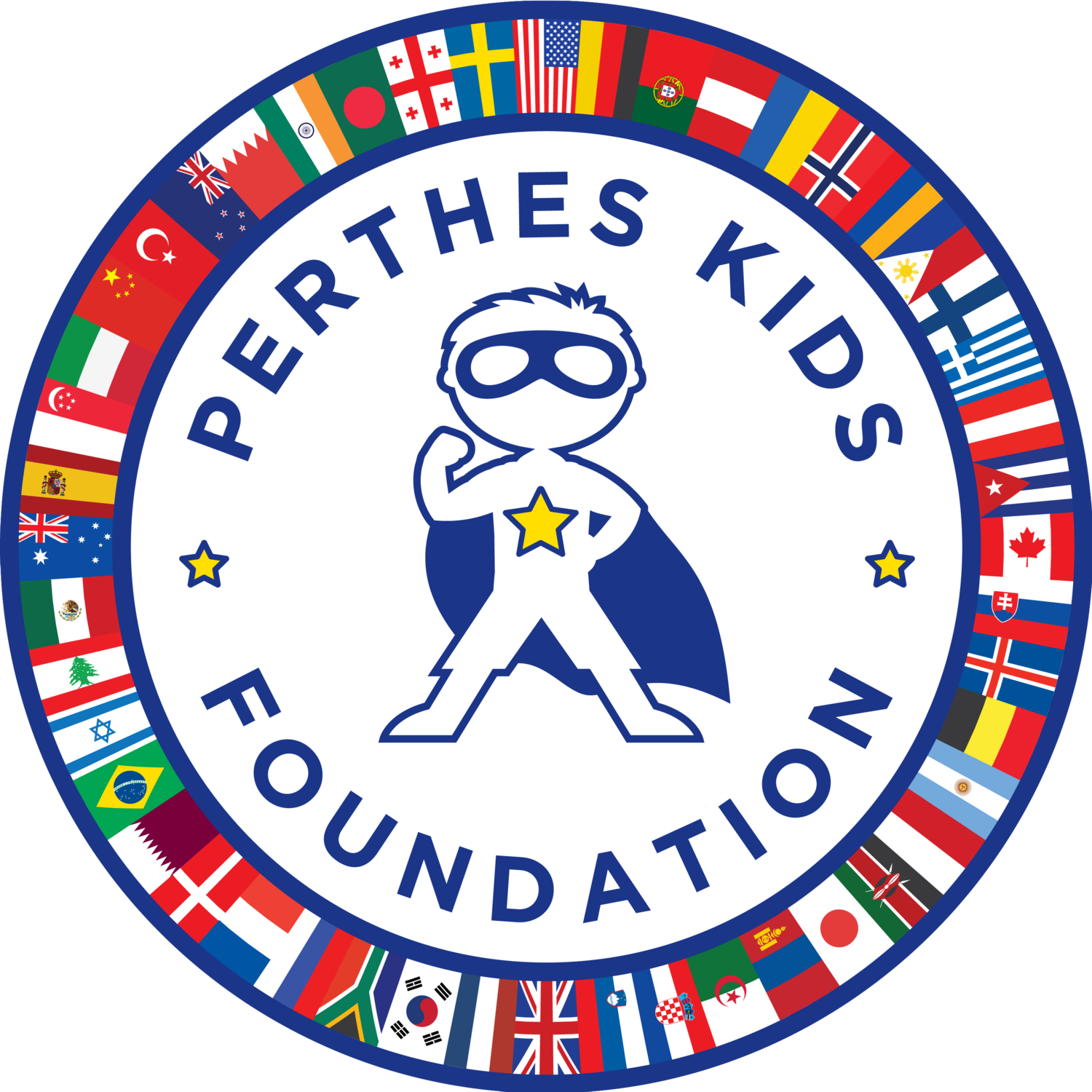Frequently Asked Questions
Photo courtesy of the International Perthes Study Group (IPSG) Conference in Dallas, Texas
Is Perthes disease hereditary?
Legg-Calve-Perthes disease (LCPD) is usually not caused by genetic factors (thus is usually not inherited ), but there are some cases where LCPD affects more than one family member. In a small percentage of these familial cases, changes or mutations in the COL2A1 gene have been found to cause LCPD.
How common is Perthes?
LCPD usually occurs in children aged 4-10 years (mean age, 7 years). It occurs more commonly in boys than in girls (male-to-female ratio, 4:1). The condition is rare, occurring in approximately 4 of 100,000 children.
Is there a cure for Perthes?
It is not curable because we don't know the cause. However, it is a self-healing disease, meaning the body is able to heal the bone in the femoral head that is affected. The healing process and the duration of the disease vary from patient to patient.
What are the symptoms for Perthes?
Signs and symptoms of Legg-Calve-Perthes disease include:
Limping.
Pain or stiffness in the hip, groin, thigh or knee.
Limited range of motion of the hip joint.
How is Perthes disease treated?
Legg-Calve-Perthes can be treated without surgery, or with surgery, depending on the child’s particular case and severity. If non-surgical treatments prove inadequate, your child may need surgery to hold the head of the thigh bone in the hip socket (containment). Surgery involves reorienting the affected bones (osteotomy) and stabilizing the realignment with screws and plates.
How long does Perthes last?
Recovery also takes a long time - rarely less than 18 months, and sometimes longer than two years. This may seem an unbearably long time, but if considered as a part of a whole lifetime, it is worth some sacrifice of time and effort if it achieves a useful, instead of a permanently damaged, hip joint for your child.
Can I claim disability for Perthes disease?
Just having the reassurance it would all be ok. Disability Living Allowance Once your child has been diagnosed with Perthes disease and your child is using crutches or a wheelchair, you are entitled to apply for Disability Living Allowance. ... Call the Child Tax Credit office for further information.
Can Perthes come back?
It is recommended that children with Perthes disease avoid high impact activities like running and jumping until the hip joint heals. Most children recover fromPerthes' disease, but it can take two or more years for the bone to regrow and return to normal.
What are some ways to help with pain management?
Take care of your body, in what you do and what you put in it. To help with pain, a major decrease in strenuous activity is highly recommended. Also, finding more activities that involve the brain, low impact or creativity, like cycling, drawing, music, writing, board games, ping pong, billiards, swimming, etc. Most parents give their children tylenol for pain, but also heating pads work, a TENS unit, and the right nutrition/foods that aren't inflammatory causing. Even magnesium and salt baths can help. Spicy foods can increase inflammation, so a well balanced nutritional diet with whole foods, vegetables and fruits, help with bone remodeling. Also using Turmeric is known to decrease inflammation, as well as, taking Glucosamine supplements. Check with your doctor on the effects of taking ibuprofen for pain (long term).
What are some alternative activities my child can do for fun?
Swimming
Arts & crafts
Learn to play a musical instrument
Play video games (with limits)
Bike riding
Horseshoes
Cooking & acting classes
Write poetry & short stories
Gardening
Drone & kite flying
Billiards
Ping Pong
Drawing
Build things with Legos & Puzzles
Watch educational TV, documentaries & movies (with limits)
Archery
Animal therapy (visit a zoo/farm, get a pet, visit a horse stable)
Get a telescope & learn about astronomy
and much, much more!
Do you have a fact sheet I can print out and give to my child’s school?
Click HERE for our Perthes Fact Sheet (1 page). This can be printed out and given to your child’s teacher, used at a fundraiser, shared with a group, or handed out as an educational tool to help raise Perthes awareness.


